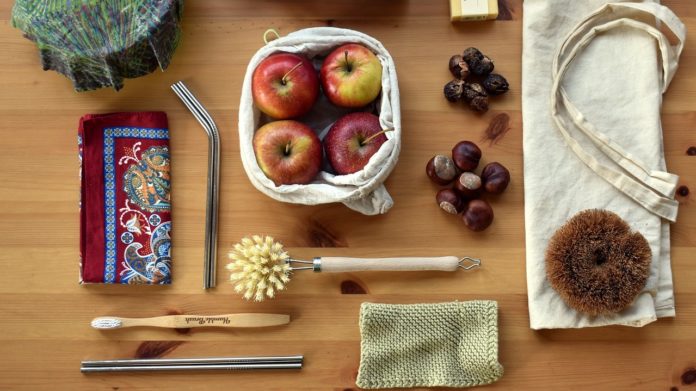Brianne Miller is a marine biologist who saw firsthand the devastation caused by human activity on ocean life, so she decided to take action… by opening a grocery store.
While studying coral reefs, tropical fish, and marine mammals, she became acutely aware of the many ways our global supply chains have a detrimental impact on these ecosystems and their inhabitants.
“I realized that every problem I was seeing with the oceans was somehow tied to our food system,” said Miller in an interview with The Narwhal. “I’ve done work now on underwater noise and obviously that’s directly related to our global economy and how we’re shipping products around the world.”
Miller responded by targeting a key area: plastic pollution in food storage and distribution. Petroleum-based plastic takes more than 450 years to decompose, and millions of tonnes of it continue to be dumped into the oceans annually.
To counter these sources of ocean pollution, she opened a store with two goals in mind: to minimize the harms of our existing supply chains, and to foster a more environmentally conscious culture around grocery shopping.
Vancouver’s Nada Grocery is the city’s first zero-waste store and it provides green-conscious customers with the opportunity to shop without building up waste. They are part of the growing national zero-waste movement and are joined by major retailers and cities aiming to restore and maintain our environment’s health.
Pioneering an “unpackaged future”
Nada’s green philosophy is built right into the store building: it’s LEED Gold certified (a third-party verification system that certifies buildings developed to the highest environmental standards), uses geothermal heating, and features UV-resistant windows.
Naturally, this is not the easiest business model to operate with, and Nada have acknowledged there were compromises to their approach during construction and in sourcing some of their products. Refrigerators that fit the space and customized countertops had to be bought new, and some snack items like chips and crackers are difficult to stock since their packaging is needed for freshness.
Nada Grocery’s mission is “an unpackaged future: a lighter world that values a food system free of excess and waste to support the health of both people and planet.”
By eliminating packaging, there is no waste left over after consumers finish using the items they buy. Miller also designed Nada’s supply chains to be as simple and direct as possible, sourcing items locally whenever possible to reduce the carbon footprint of transporting goods before they even reach the store.
They also have an arrangement with suppliers where goods are loaded up in bulk bins that are swapped out when they are empty. The new bin goes directly to the shelf via back-of-house, and the old bin is taken back to the supplier for cleaning and refilling.
Customers can make use of baskets provided when they enter the store, and they are encouraged to bring their own reusable containers. All your regular groceries can be found here, albeit in a modified form, such as bulk liquids and compostable toothbrushes. To date, Nada has prevented 950 kg of greenhouse gas emissions from food alone, and their packaging-free alternative has prevented 30,565 containers from ending up in landfills.
The Canadian zero-waste movement
Nada is part of a growing wave of businesses and individuals adopting the zero-waste philosophy across Canada. Zero Waste Bulk in Waterloo, Ont., was founded as a kind of Costco equivalent for zero wasters, and Loop, which sells groceries from Loblaws in containers that are taken back by the company for refilling, launched in Canada in February.
Major Canadian cities are joining the movement, too. Vancouver aims to become a zero-waste community by 2040, and Calgary has an ambitious 70% waste reduction strategy by 2025.
In an interview with Aim2Flourish, Miller emphasized that it’s the small contributions at scale that really make a difference: “We don’t need a small handful of people doing things perfectly and being completely zero-waste… we need millions of people making small changes that add up.”








































